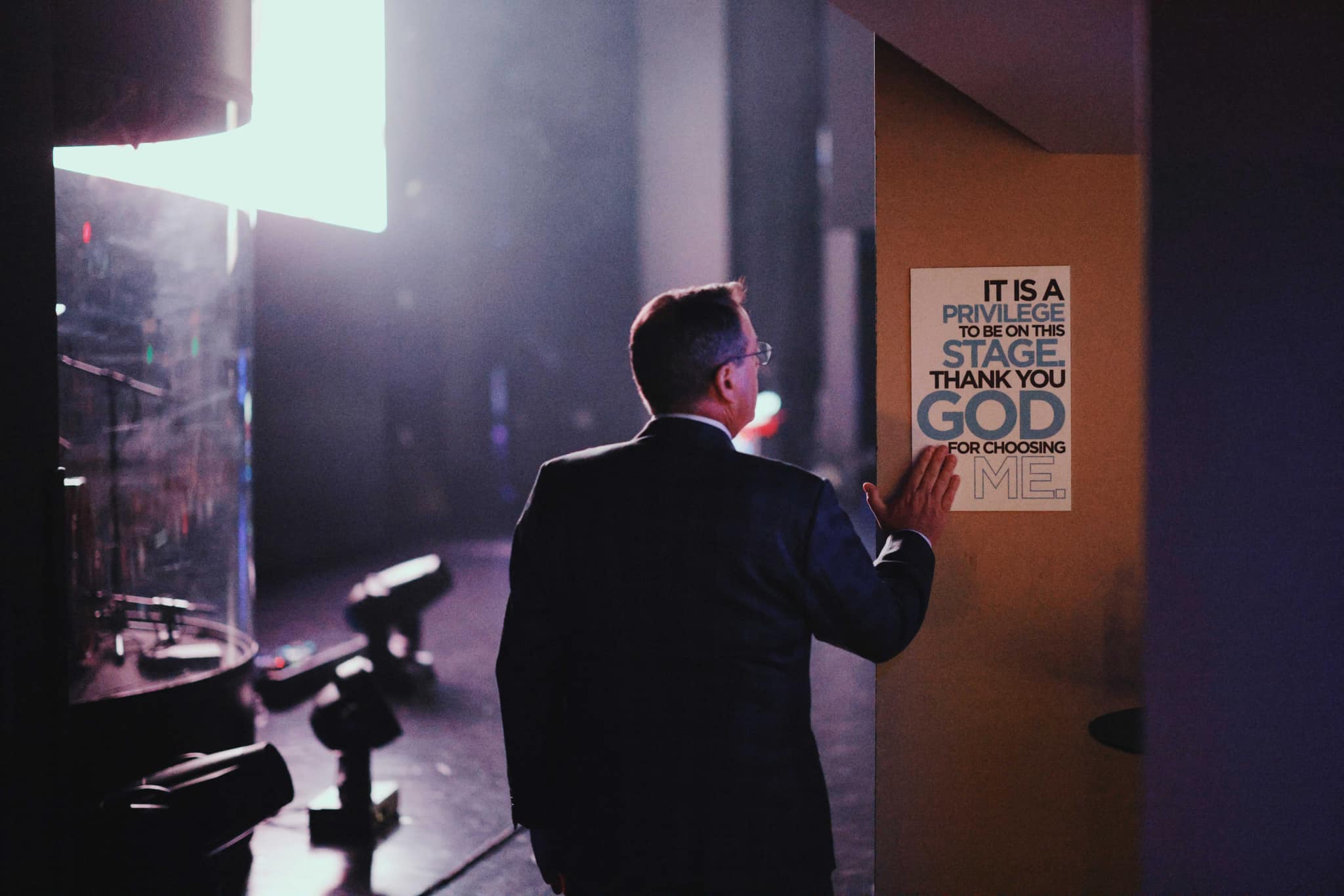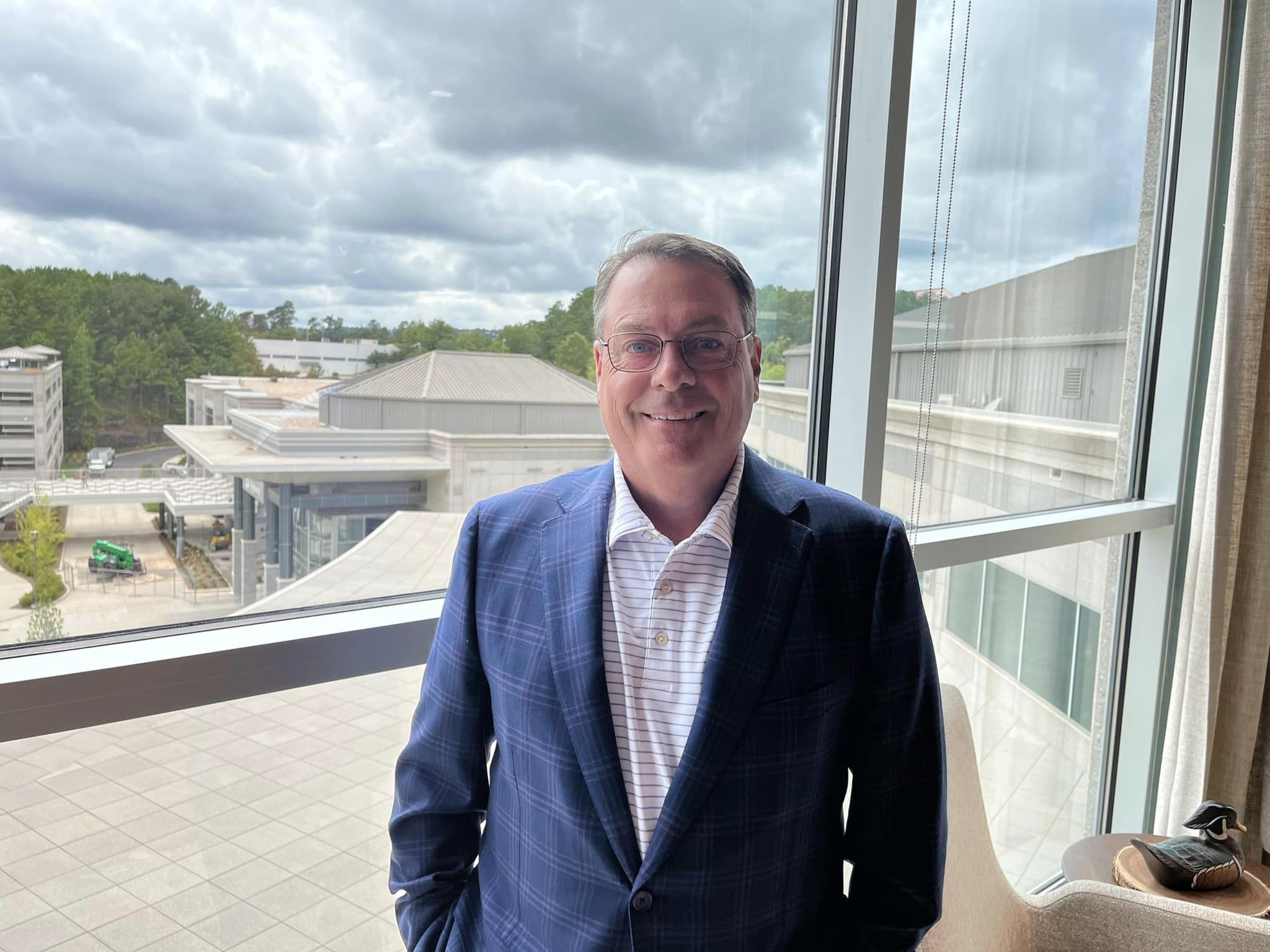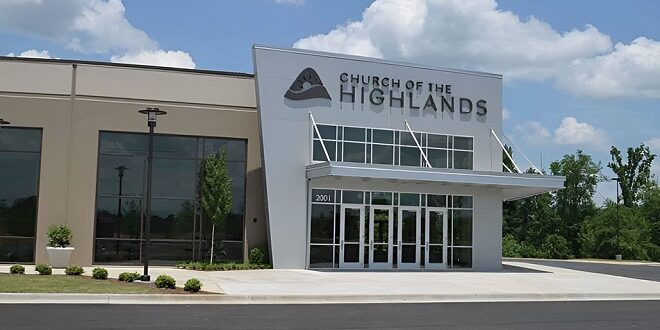The Church of the Highlands is one of America’s largest megachurches with more than 60,000 members and numerous branches in several states. However, recent allegations of gross misconduct against the church leaders have put its reputation into question. Complainants have accused the church of misusing funds collected from congregants, engaging in shady deals, and harshly discriminating against minorities, among other things.
These allegations have sparked numerous investigations into the church, but the church leaders have vehemently denied any wrongdoing. With such serious allegations against the church, many are left wondering if these claims are true and, if so, how they will affect the church’s future.
History Of Church Of The Highlands
Church of the Highlands is a popular non-denominational Christian church known for its dynamic worship, engaging sermons, innovative programs, and commitment to community outreach. With a network of campuses across Alabama, the church attracts thousands of attendees each week and has gained national attention for its growth and impact. However, recent controversies surrounding the church’s leadership and finances have raised questions about its practices and values. To fully understand the situation, it’s important to examine the history of Church of the Highlands, from its founding members to its current status as one of the largest churches in the country.
Founding Members
Church of the Highlands was started in 2001 by Chris Hodges, a former youth pastor and church planter who felt called to create a new kind of church that would be relevant and welcoming to seekers and skeptics. Along with his wife Tammy and a small group of like-minded believers, Hodges held the first service in a rented office space in Birmingham, Alabama. The early years were marked by a focus on outreach to young adults and families, as well as a commitment to creative and engaging worship services. The church’s growth was slow but steady, fueled by word of mouth and a reputation for being a friendly and supportive community.
Growth Of The Church
As Church of the Highlands continued to grow, it expanded its reach beyond Birmingham and opened new campuses in cities such as Montgomery, Tuscaloosa, and Auburn. By 2018, the church had 15 campuses across the state and over 40,000 weekly attendees. Its services were broadcast online and on television, and its social media presence was extensive. Despite its success, Church of the Highlands faced criticism for its leadership structure and its stance on social issues such as same-sex marriage and abortion. Some former members accused the church of being cult-like and controlling, while others praised its emphasis on personal growth and spiritual development. Overall, the history of Church of the Highlands reveals a complex and multifaceted organization that has had a significant impact on the Christian landscape in the southern United States. Whether one sees it as a force for good or a source of controversy, it cannot be denied that the church has created a strong community of believers who are passionate about their faith and committed to making a positive difference in the world.
Controversies Surrounding Church Of The Highlands
In recent times, Church of the Highlands has garnered much attention for several controversies that have publicly surfaced. As a result, there is much talk circulating around the church community, with some calling for a complete overhaul of the church’s leadership system. In this blog post, we will be discussing the controversies surrounding the Church of the Highlands, delving into two major allegations dogging the church: allegations of racism and financial misconduct.
Institutional Racism: Fueling Allegations Of Racism
Recently, the Church of the Highlands came under fire over allegations of institutional racism. The allegations came to light following the church leadership’s stance on racial harmony and diversity, which seemed to be lacking. The situation was compounded when church leaders were caught on camera dealing with a group of worshippers who stormed into a peaceful protest against the brutal killing of George Floyd. The protests were aimed at pressing on the leadership to be more vocal in their stance against racism and to advocate for building a community based on racial equity and justice. However, rather than engage and empathize with the protestors, the church leaders chose to call the police, leaving many wondering about the church’s true motives and commitment to racial harmony.
Financial Irregularities: Uncovering Financial Misconduct
The Church of the Highlands has also been linked to several financial irregularities that have been exposed in recent years. Some of the controversies surrounding the church’s finances include allegations of misappropriation of funds, failure to meet regulatory compliance requirements, and lack of transparency in its accounting practices. The church has also been accused of huge remunerations packages given to its senior pastors and top leaders, which many deem to be excessive. This has raised questions about the church’s priorities and whether its focus is on serving the community or enriching its leadership. The church’s management has disputed the allegations, but they continue to linger, causing concerns amongst the church’s faithful. Overall, the Church of the Highlands is currently embroiled in controversies, including allegations of racism and financial misconduct. As the controversy continues to deepen, it remains to be seen how the church’s leadership will respond to the allegations and manage the situation moving forward.
Church’s Relationship With Politics
The Church of the Highlands, a popular megachurch in the southeastern United States, has come under scrutiny for its involvement with politics. Here, we examine the church’s relationship with politics, including their history of political endorsements and their role in local legislation.
Political Endorsements
The Church of the Highlands has a history of endorsing political candidates. In 2014, the church received media attention for endorsing a failed mayoral candidate in Birmingham, AL. The candidate was a member of the church and received support from the pastor. This raised concerns about the separation of church and state, as well as questions about the motivations behind the endorsement. More recently, the church made headlines for endorsing Roy Moore in his bid for the U.S. Senate in 2017. Moore, who had been accused of sexual misconduct with underage girls, ultimately lost the election. The church’s endorsement of Moore drew criticism from many who felt that the church was putting politics ahead of morality.
Role In Local Legislation
In addition to endorsing political candidates, the Church of the Highlands has been active in local legislation. The church has lobbied for laws that align with their religious beliefs, including laws related to abortion, same-sex marriage, and religious liberty. They have also been vocal about issues related to drug addiction, poverty, and racial justice. Some have praised the church for using their influence to make positive changes in their community. However, others have expressed concern about the church’s involvement in politics and the potential for their religious beliefs to influence legislation that affects all members of the community, regardless of their beliefs.

Cult-like Practices At Church Of The Highlands
Control Tactics
Brainwashing Techniques
Impact Of Church Of The Highlands On Members
The Church of the Highlands, located in Birmingham, Alabama, has been a significant presence in the religious landscape of the region for over two decades. The church, known for its dynamic preaching, modern worship style, and emphasis on community outreach, has drawn thousands of members over the years. However, recent revelations about the church’s leadership and practices have raised questions about the impact of Church of the Highlands on its members.
Testimonials Of Former Members
Former members of the Church of the Highlands have come forward with stories of mistreatment, manipulation, and abuse by the church’s leadership. Many have pointed to a cult-like atmosphere within the church, where members are encouraged to cut ties with non-church-affiliated friends and family, give large amounts of money to the church, and follow leadership without question. One former member recounts being pressured to give over $10,000 to the church, despite struggling to make ends meet. Another describes being shunned by fellow members and leaders after questioning the strict adherence to the church’s teachings. These testimonials paint a troubling picture of the Church of the Highlands as an organization that values loyalty to leadership above all else, even at the expense of its members’ well-being.
Negative Effects On Mental Health
The testimonies of former members also point to the negative impact the Church of the Highlands can have on individuals’ mental health. The pressure to conform to the church’s teachings, cut ties with non-church-affiliated individuals, and give large sums of money can be psychologically damaging. One former member describes experiencing anxiety and depression as a result of the church’s teachings. Another recounts feeling shame and guilt for not being able to give as much money as the church expected. The Church of the Highlands’ emphasis on perfection and strict adherence to its teachings can also lead to feelings of inadequacy and self-doubt. Overall, the negative impact of the Church of the Highlands on its members cannot be ignored, and it is important to continue to examine the practices and leadership of the church to ensure the safety and well-being of its members.

Response From Church Of The Highlands
Church of the Highlands responded to allegations of racial discrimination and its leader’s ties to a controversial ministry. The response acknowledged past mistakes and promised to do better moving forward.
The Church of the Highlands, one of the largest megachurches in the United States, has recently been under fire due to some allegations made against its leadership. In response, the church has released several statements and a rebuttal to the claims made. Here is what the church had to say:
Statements From Leadership
The church’s senior pastor, Chris Hodges, released a statement addressing the allegations, stating that they are baseless and without merit. He went on to say that the church takes all claims seriously and investigates them thoroughly. Additionally, he urged people to refrain from spreading rumors and hearsay, and instead focus on the positive impact the church has had on the community. Another leader, Mark Pettus, who is the church’s executive director of business operations, also released a statement, denying the allegations and reiterating the church’s commitment to transparency and accountability. He stated that anyone with concerns or questions should reach out to the church directly, rather than relying on social media speculation.
Rebuttal Of Allegations
The church also released a detailed rebuttal to the specific allegations made against them. One of the allegations was that the church had mishandled funds, but the rebuttal explained that all finances are overseen by an independent, third-party firm, and all transactions are open and transparent. Another allegation was that the church had discriminated against LGBTQ+ members, but the church stated that it welcomes all people and seeks to create an inclusive community. They cited specific events and programs that cater to the LGBTQ+ community as evidence of their commitment to inclusivity. To address claims made against their teaching, the church provided a detailed breakdown of its beliefs and the specific scriptures that inform them. They emphasized their commitment to biblical truth and teaching that is in line with historical Christian orthodoxy. Overall, the Church of the Highlands has responded strongly to the recent allegations made against them. They have emphasized their commitment to transparency and accountability, and have provided detailed rebuttals to the specific claims made. While the situation is certainly concerning, the church’s response provides a measure of reassurance to its members and supporters.
Comparison To Other Megachurches
Compared to other megachurches, the Church of the Highlands has been exposed for its controversial practices and leadership. Despite its large following, concerns have been raised about its financial transparency and rigid hierarchy.
Over the years, megachurches have been on the rise, and comparisons have been made amongst them. The Church of the Highlands is no exception. This Alabama-based megachurch has seen significant growth and has been compared to other megachurches worldwide. Let’s take a look at some similarities and differences between the Church of the Highlands and other megachurches.
Similarities
Like many other megachurches, the Church of the Highlands has a strong emphasis on modern worship music and preaching that is relatable to everyday life. The use of technology also stands out among the megachurches, with live streaming and online resources to reach congregation members from all over.
Differences
The Church of the Highlands also has some striking differences from other megachurches. Firstly, they do not operate with multiple campuses in different locations. Instead, they have several locations across Alabama, where congregants can access live preaching. Additionally, they are not focused on building extravagant structures but instead prioritize outreach and contributing to the community.
Controversies Among Megachurches
While megachurches bring about a sense of belonging, they have not been free from controversy. Some have been involved in legal battles, public scandals involving the senior leadership, and financial mismanagement. The Church of the Highlands has also had its share of controversies, including their stance on Black Lives Matter and same-sex marriages. In conclusion, the Church of the Highlands has made significant strides over the years, garnering attention and comparisons to other megachurches worldwide. While their approach may be unique, they have a common goal, which is to spread the love of God to those around them.

Future Of Church Of The Highlands
The future of Church of the Highlands is currently unclear amidst the recent controversy surrounding the church. The allegations brought to light have brought into question the leadership and practices of the church, leaving many wondering what changes may come for the organization. Below we explore potential changes and calls for accountability that may shape the future of Church of the Highlands.
Potential Changes
While it is too soon to say for certain what changes may take place within Church of the Highlands, there are several possibilities that have been discussed in light of recent events. One potential change is a greater emphasis on transparency within leadership. This could include more public forums for discussion, greater financial disclosure, and increased accessibility for congregants seeking answers or voicing concerns. Another possibility is a shift in the church’s management structure, particularly when it comes to the role of senior pastor. With the resignation of former pastor Chris Hodges amidst the controversy, there may be an opportunity to re-evaluate this position and ensure greater checks and balances in the decision-making process.
Calls For Accountability
As the accusations against Church of the Highlands continue to surface, many are calling for greater accountability from the organization. This could take a number of forms, including increased transparency in the organization’s financial practices and more concrete steps taken to address issues of race and diversity within its ranks. There are also calls for an independent investigation into the allegations against the church, particularly those related to its handling of sexual abuse claims. This kind of investigation could shine a light on any problematic practices within the organization and help to ensure that similar issues do not arise in the future.
Conclusion
With so much uncertainty surrounding its future, Church of the Highlands is undoubtedly facing a challenging time. However, by listening to concerns voiced by congregants and taking concrete steps towards greater accountability, the organization has a chance to emerge from this controversy stronger and more focused than ever.
Conclusion
The Church of the Highlands has faced backlash for its leadership and financial practices. The exposure of these issues has sparked a conversation within the community about the importance of transparency and accountability within religious institutions. It’s essential for any organization, religious or not, to be transparent in its financial dealings and leadership decisions.
It’s up to the community members to hold their institutions accountable for their actions. Let’s hope for a brighter future where accountability and transparency are taken seriously for the betterment of all.




